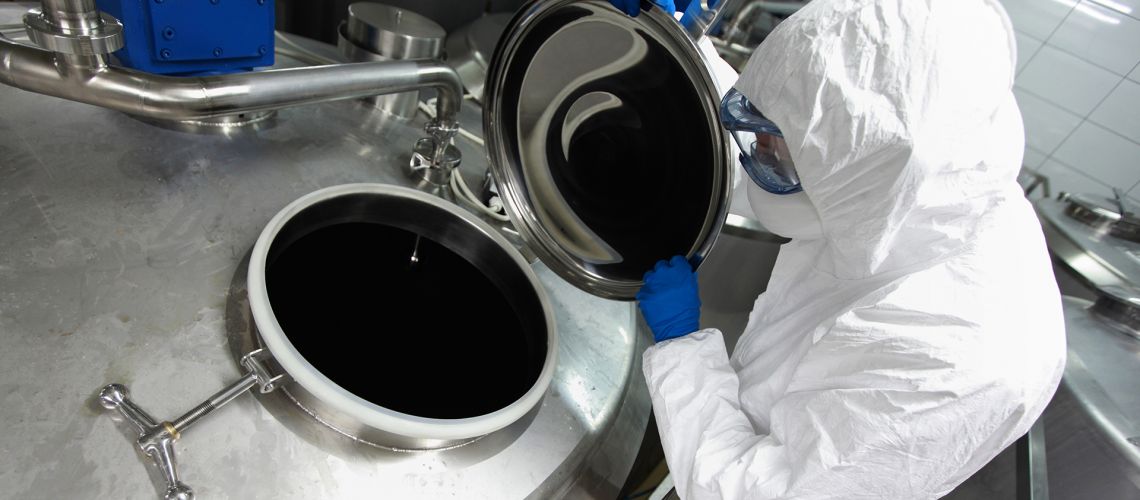Waste water treatment services are necessitated by a wealth of industrial processes, ranging from food production and chemical manufacturing, municipals, to facilities using detergents, sewage works, and more. All industries have a responsibility to ensure that any waste water entering a sewer, lake, river or other outsource meets with strict local regulatory requirements. With the decreasing availability of fresh water, the market for waste water treatment chemicals is set to experience significant growth over the coming years.
Waste water treatment chemicals
There’s a wide range of chemicals used for waste water treatment, with coagulants, flocculants, and defoamers (or anti-foaming agents) most commonly used.
Coagulants
Coagulants and flocculants work together to remove suspended solids and clear up waste water. Coagulants are generally positively-charged compounds with a low molecular weight, and are designed to neutralise the charge of particles suspended in waste water. They can either be inorganic and made from aluminium or iron compounds, or they can be organic polymers, like polyamines, tannins and melamine formaldehydes. Coagulants work by counteracting the repellent effect that prevents negatively charged particles from aggregating, allowing them to then be bonded together by flocculents.
Flocculants
Once charge-neutralised, solids in waste water can be further agglomerated with flocculants, which tie particles together like rope, creating ‘flocs’, which are larger in size and easier to remove. Flocculants come in various charges, charge densities, molecular weights, and forms. The optimum combination of coagulants and flocculants will depend on the type of waste being removed and the design of the treatment facility, i.e. whether it uses settlement or floatation to remove the suspended solids from the waste water.
Defoamers
Foam can be very problematic for industrial processes, as it changes the physical properties of fluids. This can cause additional wear and tear on pumping systems, blocking filters and reducing the overall efficiency of water processing facilities. It can also cause deposits to form in processing equipment and storage tanks, which can lead to health risks from bacterial growth, meaning additional cleaning is required. Foam is caused by the formation of air bubbles in waste water, and can be tackled with a range of different defoamers; including alcohols, glycols, insoluble oils, silicones, and stearates. They are all low viscosity chemicals that cause air bubbles to burst and breakdown the surface foam.
A growing global market
By 2016, the global water treatment chemicals market was estimated to be valued at over $26.5 billion, which represented 3.3% growth year-on-year since 2015. This has been driven by a combination of fast-growing industrialisation and urbanisation in certain global regions, with decreasing fresh water resources and increasingly stringent government regulations. Asia Pacific accounted for the largest share of this growth, with 2,998.6 kilotons of waste water treatment chemicals consumed in 2015 alone, followed by the US. Europe is the third largest market for water treatment chemicals, with a predicted compound annual growth rate of 4-4.5% between 2015 and 2020. Germany forms the largest market in Europe, as well as the one with the fastest growth, with a predicted average rate of 5% from 2015 to 2020.
The market for coagulants and flocculants is projected to experience the highest growth rate of water treatment chemicals. This is largely attributed to the increase in municipal water treatment services associated with growing urban populations around the world, along with the increased scarcity of water for industrial applications. The higher incidence of water-borne epidemics has added to this, leading to greater public awareness of water purification and the use of chemicals. This, in turn, has led to stricter demands from governments to improve purification methods, especially in Europe, where regulations regarding potable water treatment limit the use of inorganic chemicals in waste water treatment.
Leading waste water treatment chemical suppliers
The market for waste water treatment chemicals is growing quickly, while the availability of fresh water that can be used for industrial purposes is decreasing year-on-year. Partnering with an experienced water treatment chemical supplier can help accurately determine your water treatment requirements, and identify opportunities to maximise water recovery and reduce your disposal costs. To learn more about the waste water treatment solutions offered by Enva, please visit our website. If you have any questions about waste water treatment chemicals, or you would like to discuss your requirements and the options available to you, please contact the Enva team today.

